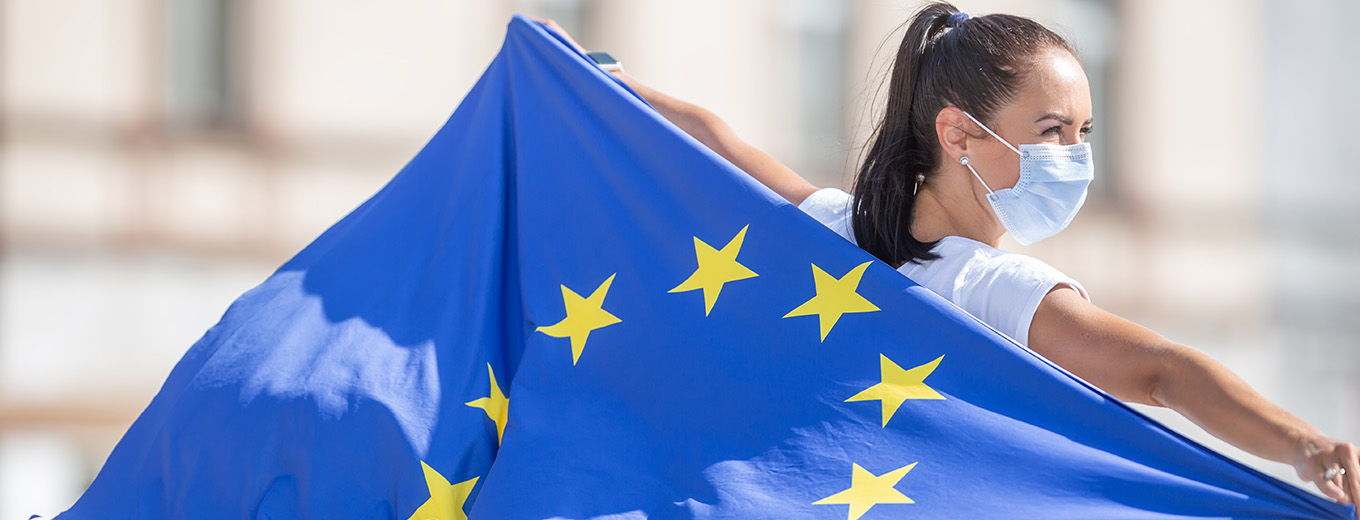While everybody welcomed the start of the European Year of Youth 2022, the concrete activities and outcomes are yet to be defined. A survey contributes ideas.
The EU designated this year 2022 to be the European Year of Youth (EYY), officially adopted in a Decision by the European Parliament (EP) and Council on 22 December 2022 (SwissCore article). The decision asks to appoint national coordinators responsible for the EYY activities in the Member States; while the European Commission (EC) is responsible for the overall coordination and the organisation of EU-wide activities. A budget of at least € 8 mio will be made available for EYY activities (taken from the budgets of Erasmus+ and the European Solidarity Corps). As part of the preparation process of the last months, the EC conducted a survey in October and November 2021 to collect ideas and feedback from young people about what they expect from the upcoming EYY 2022. The results of this survey were published on 6 December 2021. About 4’500 young people participated in the survey and shared how they imagine being involved. The respondents mostly wished for the activities to consist of festivals, workshops, debates and trainings sessions. And quite strikingly, in the spirit of participation, almost 60% of the young people said that they wanted to actively contribute to the EYY and a large number were even/also willing to organise activities themselves. In doing so, they stated that they mainly wish to interact with other young people from across Europe, and less with representatives from the EU or from youth organisations. The topics of education and training (63%), climate change and environment (60%) as well as health and mental health (56%) were named most often to be addressed in the EYY. Lastly, it becomes clear from the results that the EYY should be about creating more opportunities for young people to take part in decision-making and to make their voices heard. They want the EYY to be about concrete actions and going beyond talk. A number of respondents were worried about the potentially meager impact of the year due to the short timeline, as the EYY was only announced in September 2021 and many aspects of the programme are still unclear.
Similarly, the European Economic and Social Committee (EESC) warned in an opinion on 8 December 2021 that the EYY should “go beyond mere promotional activities” but aim to create “concrete and enduring outcomes for all young Europeans”. The EESC therefore calls for clear indicators and goals which the activities in the EYY should achieve, paired with increased funding (€10 million).
The European Youth Forum, which represents the national youth councils across Europe (including SAJV in Switzerland), proposes two concrete EU policy initiatives as outcomes of the EYY 2022: the banning of unpaid internships and the ‘youth test’ on EU level. This ‘youth test’ rule would stipulate that as part of all EU decision-making the impact on young people and the next generation needs to be considered. The EP also supports the ban of unpaid internships (cf. paragraph 13 of the EYY Decision).
The EYY will focus on four aspects: First, countering the pandemic’s negative effects, and highlighting the chances of the digital and green transitions for young people and society as a whole. Second, supporting young people, especially young people with fewer opportunities. Third, promoting the various opportunities for personal and professional self-development that exist on the EU, national and regional levels. Fourth, inspiring youth-driven policy making, linked to the EU Youth Strategy 2019-2027. They EYY should further boost the participation of young people in the Conference on the Future of Europe.
New programmes like ALMA to support the mobility of young people not in education, employment or training (which will be launched in 2022) and national and regional projects funded by the EU’s recovery instrument NextGenerationEU will provide further opportunities for young people in the European Year of Youth 2022.
A dedicated page on the European Youth Portal was set up and gives an overview over all planned activities. The programme of the EYY 2022 will continuously be filled with activities on European and national levels. The dedicated webpage will be updated accordingly.
As Switzerland is not part of Erasmus+ and the European Solidarity Corps (ESC), there are no activities foreseen in Switzerland. However, the EU wants to cooperate with the Council of Europe’s ‘Youth for Democracy, Democracy for Youth’ campaign and other international youth networks and organisations, which could include Swiss organisations.

